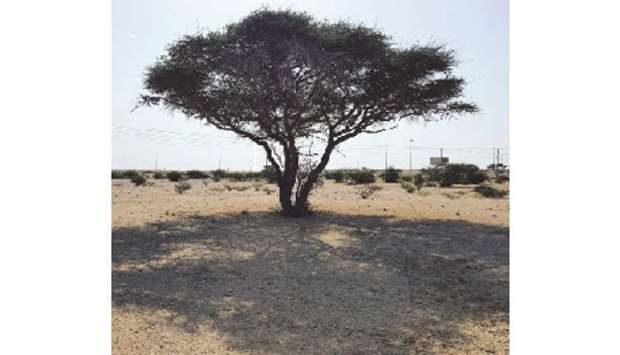Qur’anic Botanic Garden (QBG), in collaboration with the International Union for Conservation of Nature Regional Office for West Asia (IUCN ROWA), hosted a webinar titled Wildlife Conservation Efforts after Corona; Challenges and opportunities in the Arabian Peninsula.
The session shed light on the efforts, opportunities, challenges, and projects implemented in the region with regards to protecting plant and animal wildlife. Moderated by QBG assistant researcher Ahmed ElGharib, the interactive webinar brought together experts from the Ministry of Municipality and Environment, Astad Project Management, the IUCN, Royal Botanic Garden of Jordan, and QBG to discuss various topics and exchange expertise in the field of nature conservation.
Among the topics discussed were: the potential impact of Covid-19 on protected areas and nature conservation efforts both in the Arab and greater West Asia regions, the sustainable management of natural resources in light of climate change and other environmental challenges, nature restoration programmes in Qatar, as well as plant species studies and methods of plant and seed propagation for ecosystem preservation.
Dr Hany El Shaer, regional director, IUCN ROWA, a speaker, said: “The webinar was an excellent opportunity to exchange knowledge and plan together for better conservation strategies in the region. It also shed light on both the positive and negative impacts of the coronavirus on the environment. With relation to this, the IUCN’s programmes reported that as a result of social distancing, air, beach, and noise pollution levels have significantly fallen in many countries.”
Sheikh Dr Soud al-Thani, sustainability director, Astad Project Management, and also a speaker in the webinar, said: “Around the world, and during this period in particular, consideration for the environment is becoming an increasingly important and relevant topic, which QBG has taken a proactive stance on with this webinar. Considering the rapid rate of development in Qatar and around the world, it is imperative that we begin implementing sustainable methods of development and nature conservation to take better care of our environment.”
Commenting on the webinar, Fatima al-Khulaifi, director, QBG, said: “Earlier this month, we marked World Environment Day by highlighting the necessity of protecting our ecosystems, which, in light of the many environmental challenges that the world is facing, has become a major priority.
QBG is pleased to have brought together experts from across the Arab region to exchange their expertise and explore sustainable solutions that will provide a better tomorrow for our planet. We look forward to engaging the public further on such important topics in the future.”
QBG has previously collaborated with the IUCN’s Commission on Ecosystem Management to host a forum titled Islamic Perspectives on Ecosystem Management, which brought together local and international ecologists, ecosystem managers, scholars from botanic gardens, religious experts, and other relevant stakeholders to share their expertise and experiences in preserving the environment, as well as exploring Islamic principles, values, and ethics that promote plant conservation.
QBG is a member of Qatar Foundation. More information on QBG’s upcoming events and activities can be found on its social media channels on Instagram: Quranic_Botanic_Garden; Facebook: Qur’anic Botanic Garden, and on Twitter at @QuranicGarden.

The webinar looked at both the positive and negative impacts of the coronavirus on the environment.
